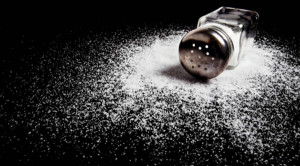Electrolytes 2 - Sodium
Electrolytes 2: Sodium
Sodium is the major positive ion in fluid outside cells. The transmission of sodium is a critical body function especially in brain, nervous system and muscles which all require electrical signals for communication. Sodium is an important electrolyte that helps maintain the balance of fluid in a person's body. This means that sodium helps to regulate the amount of water in and around your body's cells. If the fluid levels in your body are not balanced, your cells will swell and medical issues may occur.
Without appropriate amounts of sodium, your body may have a difficult time cooling down after intense exercise or activity. When the body is hot, you sweat. If you do not have enough sodium, your body may not sweat as much and you may then become overheated. This could then result in a stroke, exhaustion and dehydration. Sodium is also important because it plays a major role in the regulation of your blood pressure. If your blood pressure is too high, it places you at risk for such illnesses as heart disease. Too much sodium can result in high blood pressure and could spark a heart attack and too little sodium could make you feel weak and exhausted all of the time.
This electrolyte plays an important role in ensuring that nutrients are passed into the body's cells. Similarly, if you want your nervous system to operate correctly, then you will definitely need the right amount of sodium in your diet. If you do not have enough sodium in your diet, you could even experience seizures.
Foods you will find sodium in are meats, grains, dairy, nuts, fruits and vegetables in modest amounts. Salt can be used in moderation to enhance sodium levels, but should not be overused.
It is said healthy adults should consume no more than 2,300 mg of sodium per day.
High-sodium cheeses include cheddar, parmesan.
Many fast-food items contain high levels of sodium
Other high-sodium baked goods include biscuits, muffins, baked pie crust and sweet rolls.
Canned goods contain salt, which preserves the vegetables and prevents them from spoiling quickly. Salt also adds flavor to canned goods. High-sodium canned foods include canned kidney beans, pickled vegetables and sauerkraut.
Salted nuts, pretzels, tortilla chips and potato chips add sodium to your daily diet.
Read more: http://www.livestrong.com

